“This one?” I ask, leaning in like it'll bring the thing into more focus. The picture's of everyone dressed for the evening, in black and navy and smiling. Simon's in junior high and Finn's middle school. The background suggests a wedding party, but they're wearing kippahs of different colors.
Finn's playing Mario Kart in the basement, glancing my way every so often to see what I'm referencing. “Cousin Liza's bat mitzvah. She's a lawyer now, I think. I don't know. We don't talk to her.”
The basement is perpetually cold. So painfully cold. In summer, I'd imagine it's a glorious haven, but it is unfathomably cold. It has window wells to let light in, but all I see is the metal of the wells and glimpses of the bushes that hide them. “This one?” I turn the photo album his way, tapping on the corner of a vacation picture.
He looks at it then pauses the game. “...Legoland.”
“They have an amusement park made out of Legos?” Neat.
“It was a bad trip.” He goes back to the game.
I don't ask. I know he has a limit, and I don't want to push him closer to it. I flip backwards until I come across a picture of a young Simon, his eyes blood red and holding a bouquet of flowers. He's smiling. “What's this?”
Finn side-eyes it and pauses the game again. He takes out the picture and flips it over. “Oh. Simon was in a musical. A lot of them.” He puts it back and goes back to the game. “He hated them, if I remember right. Was terrible at them, too. Like a bad homo.”
In following pages, Simon's stint with theater seemed to continue. The look of distress is displaced, as time goes on, with forced smiles and tired eyes. Bright flowers and dull, dying stares. Scattered in between were pictures of familial life, of luxurious-looking vacations, of successes in extracurriculars, and awards in competitions. “Mathletes. Swim Team. Soccer. School newspaper.”
“Yeeeeeaaaaaaaaah, Colin and Amy did that a lot. Mostly Colin but I can't not blame Amy for it.”
“I take it you're not involved with this much like your brother.”
“Not anymore. I think they got tired of me pushing back as much as I did, and wasting money when they signed me up for shit I didn't go to.”
“Must be nice.”
“I have a life, if that's what you're saying.”
“Could be.” I smirk at him.
He side-eyes me and grimaces.
I get to Simon's high school graduation, and that desolate look in his eyes in all-consuming despite the grin on his face. He holds his graduation cap, decorated with “COULD'VE BEEN VALEDICTORIAN” with a tongue out emoji, to the camera (though why any high school needs a cap and gown for graduation is absolutely lost on me) (also, putting that on a cap feels like such a slap in the face). His parents stood either side of him, hands on Simon's shoulders, and smiling. In the countless pages after, it's just Finn, Mr. Hopkins, and Mrs. Hopkins. There are no other pictures of Simon.
“...and that's when Simon was in Annie Jr. Oh, he had a very hard time memorizing the lines, and had awful stage fright. I had a wonderful time performing when I was his age, so I thought he would, too, but no. I thought he would just shake it off, get used to it, but he...struggled,” Mrs. Hopkins says. She turns the page. “He used to love dancing, my Simon, but onstage, he froze up.” Another page is turned. “He was on his high school's mathletes team, and on the swim team.”
“He was quite busy, huh?”
“Yes,” she sighs, turning the pages. “With my job, and Simon's dad's work, I didn't want him or Finn being too lonely when we were gone. We traveled a lot for it.”
“What did you do?”
“I was a photographer. Semi-retired now.”
“Really?”
She nods.
“I bet you have some great stories.”
“Not really.” She sighs again. “While I did travel a lot, it wasn't for the exciting stuff a lot of people expect. Lots of court cases, boring political events, fashion shows. I have colleagues who were almost caught in stampedes in Africa. Riots. Some of them were at Ground Zero on 9/11.” She hummed, turning to me. “Always seemed to be in the wrong place at the right time. Kind of a bummer, if I'm honest.” She continues turning pages, and this air of gentle poison tingles my tongue.
“...did you enjoy it?”
“Yeah. Yeah, I don't regret it.” Mrs. Hopkins purses her lips and grimaces. “I could've kept going, but genetics, along with younger photographers, were against me.” She laughs, a brief sound masking her obvious discomfort. “I've always had a bad back and bad knees, and I've always felt iffy about getting surgery for it all. I want to age gracefully.” She adds a flourish, waving her hands through the air like a vintage actress.
“I'm sorry.”
“It wasn't bad. I work for the regional paper now. Part time, but...I enjoy it.” She nods, her lips gently pursed.
I didn't say anything for the longest while as she flips the pages of the photo album. “I bet they missed you. Finn and Simon. When you were gone.”
“I hope they did,” she whispers. “We worked hard so we could give them the kind of life Simon's father and I never had. And I did not raise boys to be slackers. We...” Mrs. Hopkins hums the rest of her response before turning to me. “Simon and his father fought the night before, and my husband said some awful things to him. When he left, we all were...hurt.”
My skin prickles.
“But, it's not my place. I am but one side of the story.” She glances back to the photo album and sighs. She turns back to me. “Did he mention us? When you met him?”
I swallow and smile. “...yes,” I whisper, feeling sick to my stomach. “It was all really hard for him.”
Mrs. Hopkins smirks and puts her hand on my shoulder. “You're a kind boy, Micah. I bet you've made your parents proud.”
For the most part, I like to think they would be proud of me, too.
“I can assure you now, Mr. Cohen, that most of my books would not interest a person like you,” Mr. Hopkins says, pacing in front of the study's fireplace. He holds one of those books I'm not interested in in his hands, about familial disconnect and the gripes of the younger generation. His eyes match his son's, so sunken and tired and sad, but the air around this man is exhaustion. Fighting wars and going to bed knowing you'll wake up to fight again, and there being no ending in sight.
“Thank you for...telling me, Mr. Hopkins,” I say, smiling, “but I wanted to ask you something.” The sweeping generalization about his book collection - business and political books – is wrong, much to my own relief. In the mix are books on self-worth, psychology, long-finished wars, and, of all things, planes.
I sink into the armchair, the sun beating down my neck. The wood-paneled room's the only space in the house I've not been in, and it's by far the warmest.
“Does it have anything to do with my son?”
I sigh. “Yes.”
“No.”
“It has nothing to do with our relationship, I'll let you know now.”
He looks at me. A long moment passes before he whispers, “No.”
“Mr. Hopkins, I don't want to be asking this.” I sigh. “But I need to.”
“No, you do not.”
“Sir.”
“I don't want to know what you and my son are up to.”
“Simon was on the mathletes?”
He blinks. “Yes.”
“And swim team?”
“Shall I list all of his extracurriculars for you?” he asks, sitting in his chair. “He did our Park District's summer musical for 5 years until he was 13. He was on the soccer team, participated in the high school's broadcast club, the school newspaper. He had a full scholarship to the University of Massachusetts, which was not easy to get. He was going to study political science and physics.”
“What happened?”
“Who knows,” Mr. Hopkins sighs. “Maybe his rebellious teenage phase came early, or maybe he never wanted to apply himself. Everything he did, he never excelled at. He was a disaster in the musicals, couldn't keep up with the other soccer players, outright hated being on the swim team. I never understood how someone could have everything handed to him and doesn't do anything with it.”
I glance away.
“If he had just applied himself, he could've graduated valedictorian, like we planned. And then halfway through the summer before he went to college, he was saying some nonsense about liking guys, packed up his things, and left. Didn't say anything about it to us, and didn't tell any of his friends, either. Snuck out of the house like a rat. Stole the car I bought him for his 16th birthday and disappeared.”
I swallow. “You seem angry.”
“Not angry, Mr. Cohen,” he says, his tone suggesting otherwise, “but disappointed. We had talked about this before he graduated. Well before he entered high school. He understood everything I discussed with him. He were setting himself up for success.” He presses his hand against his forehead, his stare unfocused. “When he told me he was a homosexual, we argued, and I told him to go. That was his choice. I didn't think he would, though.”
Again, I glance away.
“So if Simon hasn't told you all of this, there's probably a good reason why.” He slips on his glasses. “Go. I have some work I need to do.”
I nod and stand. “Thank you for telling me,” I say, smiling.
He hums, ignoring me.
I leave.
The house groans softly.
Everywhere is a little colder, and the spark in my upset stomach trembles its way up my throat.
I don't tell the Reynolds. I call them, and I don't tell them what's going on. The growing spark in me that's starting to burn. Simon and his isolation from his family. The backstory that's this great jigsaw puzzle I'm piecing together on my own, and I feel how alone doing it is.
I don't know why I don't tell the Reynolds.
“Simon?” I whisper, my hand pressed on his shoulder. He's sitting in front of his computer staring up at the ceiling, and I'm not entirely sure if he's in a trance or sleeping. “Simon.”
His head drops, and he looks at me. “...yeah?”
“Are you okay?”
“Yeah.”
“No, that's not – no.” I sit down beside him. “Are you okay? Like, you...you've been worrying me the past couple days. You don't seem like...yourself.”
“Yeah, I'm fine.” He blinks and turns away.
“Simon.”
“I'm sorry, but I need to finish this.”
“Simon – ” I grab his head and turn it back so our eyes are on each other again. “No, I'm, I'm worried about you. Y – when we were sitting outside, you said you had thoughts. What did you mean?”
Something crosses his face, and he shakes himself out of my grasp. “I told you. They were just thoughts. Nothing serious.”
“I still said I wanted to know about them.”
“They're just thoughts, Micah.”
“'Just thoughts' are still thoughts.”
“Micah – ” He pries my hands from his face and holds them. “I'm fine. Promise.”
I don't trust him. I swallow and try to ignore the spark inching up my throat. I want to hold his dumb, handsome face and have him tell me everything that's running through his head. I want to know why he's suddenly so depressed. I feel so absolutely worthless that I don't know how else to help him.
“Micah, I'm sorry. I have work.”
I tug on his shirt. My hands ball the fabric so hard it catches me off-guard.
I'm angry.
I'm angry.
I don't want to be angry. “5 minutes?” I ask.
“Micah – ”
“I miss you.”
“I miss you, too, but this – ”
“Please?”
Simon sighs, and his eyes flutter closed as he leans into me. “...okay.” The word is soft, defeated, dripping in exhaustion, and it irks me to no end.
That's the quiet, and definitive, end of the conversation.

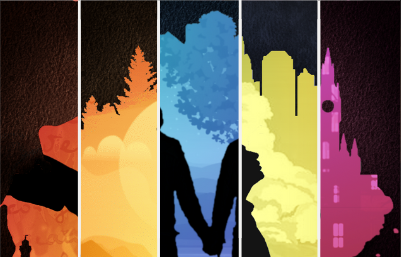
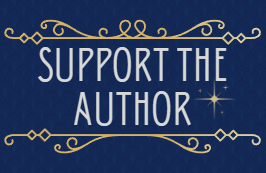
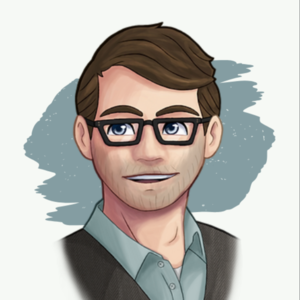







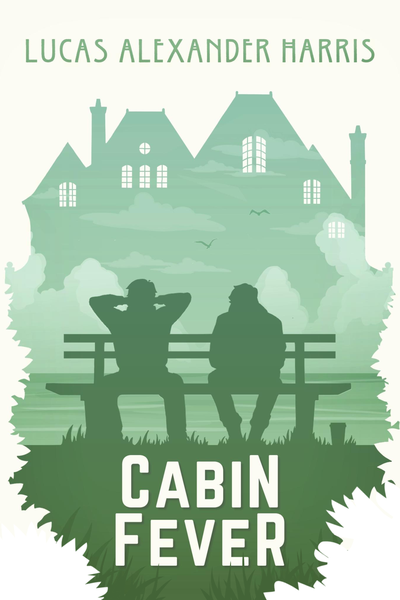
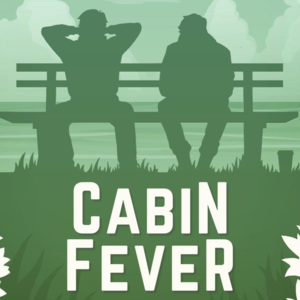
Comments (0)
See all